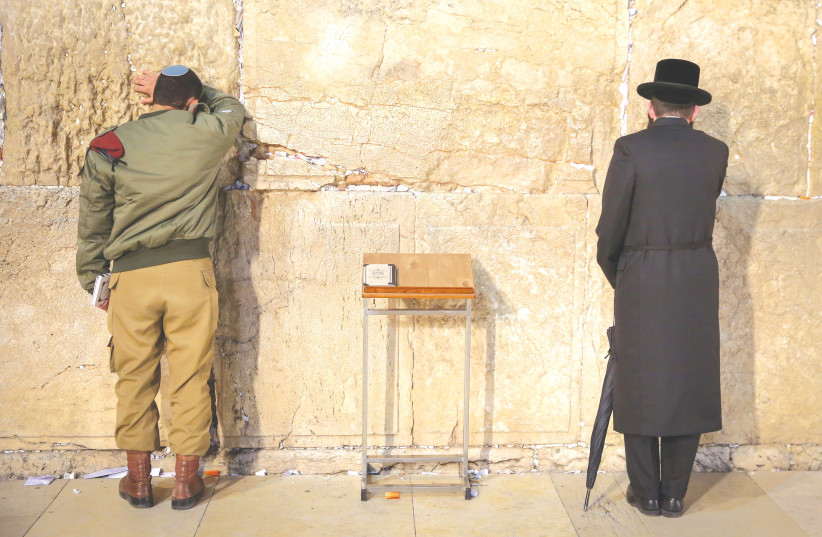The Likud denied reports that Prime Minister Benjamin Netanyahu met with the haredi (ultra-Orthodox) parties to discuss a new IDF conscription model that is being internally debated.
This follows news reports that said the prime minister approached the haredi parties, United Torah Judaism and Shas, and asked them to drop - or severely soften - their requests for the new Conscription Law. The reports said Netanyahu warned them of the negative impact it could have on the army.
Sources told Hebrew media said the haredi parties flatly refused this request, reiterating their desire that the law be passed with a clause that could prevent it from being disqualified through judicial review.
It has already been reported in The Jerusalem Post and elsewhere that the haredi parties are threatening to dissolve the government if the new draft bill is not passed immediately following the summer Knesset break, scheduled to end on October 15. They have pressed that this be the first priority, and that judicial reform will not move further if their requests are not met.
Further exemptions planned for haredi youth
The new proposed bill would further IDF exemptions for haredi youth studying full-time in yeshivot. This follows a six-year delay after which the High Court of Justice struck down the original draft bill, saying the exemptions were too sweeping and unequal.

The main impact of the proposed new bill is to lower the age of permanent exemption from 26 to 22, with a focus on promoting national service participation and employment within the ultra-Orthodox sector. It will also include an increase in benefits for those who are drafted or in the reserves.
The reports last week indicated that the government anticipates a heavy public response to the bill - from civilians, reservists, and even active duty soldiers - and that even those who support the coalition would be hesitant to support it. It added that some in the Likud fear that the haredi parties might indeed dissolve the coalition and join forces with MK Benny Gantz’s National Unity Party, per their threats.
During the formation process of the government, the Likud signed a coalition agreement with the haredi parties that called for a new draft bill with a mechanism in place that would make it immune from judicial review. The deadline for such a bill was set before the passage of the budget, though it was postponed.
The rush for a deal is due to the fact that technically the original draft bill expired on June 30, but a temporary extension was granted until March 31, 2024. As such, yeshiva students do not currently have their special status, and if no bill is passed by the March date, they could find themselves drafted en masse.
Haredi parties have pointed to Torah study as an essential national service to the country, and therefore do not believe they need to serve in the IDF. It should be noted, however, that other religious parties such as Religious Zionism view military service as an essential Torah commandment, and many in their camp complete dual yeshiva and military training.
The current National Service Law, which passed in 2014 and in 2015, sets the number of haredi draftees to the IDF per year and sanctions yeshivot that do not meet these numbers. However, as mentioned, the High Court deemed the bill unconstitutional, saying it was unequal.
The court initially gave the Knesset a year to amend the bill, but this was delayed 15 times due to the string of elections that plagued the country. Due to this, those drafting the new bill have been careful to toe the line regarding what may be considered too sweeping for the court, and therefore be struck down in an inevitable future hearing - assuming a clause is not passed prohibiting judicial review.
In general, the idea of the proposed legislation is to enact a new policy of choosing equality of the “economic burden” over the “military burden” by lowering the exemption age for haredi men from 26 to between 21-23, thus allowing them to enter the workforce earlier, while minimizing the inequality to soldiers by shortening the length of service and providing benefits for those who do serve.
Senior members of the IDF, including Chief of Staff Herzi Halevi, and Defense Minister Yoav Gallant, have been involved in the bill’s formulations.
